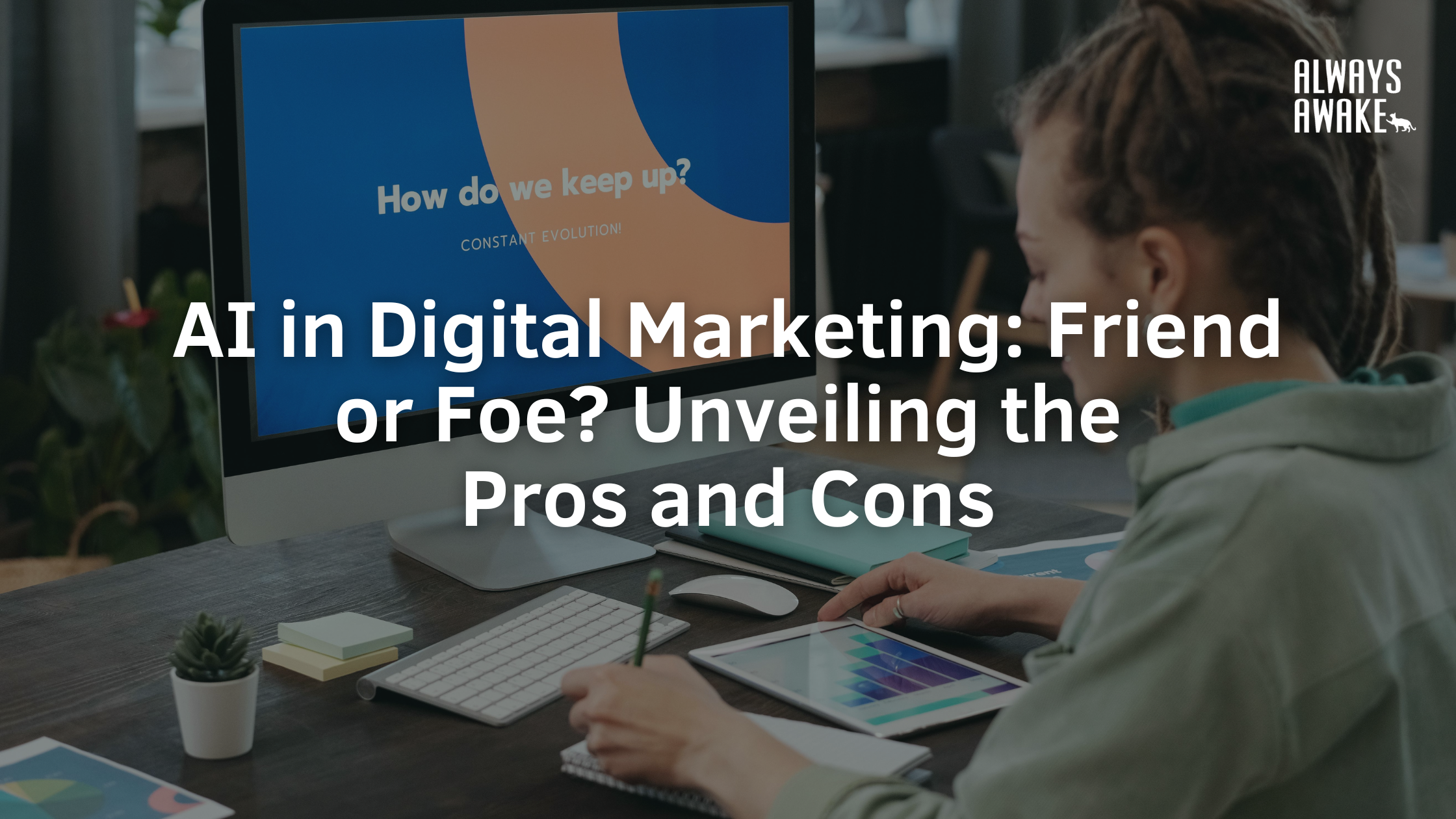
AI in Digital Marketing: Friend or Foe? Unveiling the Pros and Cons
The digital marketing landscape is a battlefield. To win the hearts (and wallets) of consumers, businesses need every weapon in their arsenal. With the promise of automation, enhanced customer insights, and personalization, artificial intelligence (AI) has become a potent new instrument. But would AI help or hurt your online marketing plan? Let’s investigate both aspects of the matter.
The Allure of AI: Supercharging Your Digital Marketing
AI offers a range of benefits that can revolutionize your marketing approach:
- Revealing the Potential of Customization: Artificial Intelligence has the ability to evaluate consumer information to tailor advertisements, suggested products, and web content. Increased engagement and conversions result from this laser-focused strategy since it speaks to specific clients. As covered in an earlier article about Generative Engine Optimization (GEO, future of SEO).
- Automating Repetitive operations: AI is capable of automating a wide range of time-consuming operations, from social media post scheduling to ad campaign optimization. Your marketing staff can now concentrate on innovative tactics and high-impact projects.
- Better Decisions Based on Data: Artificial Intelligence is highly proficient in examining large datasets to reveal latent patterns and trends. This gives advertisers the ability to allocate budgets, create content, and decide on marketing strategies based on data, which produces better outcomes.
- Forecasting Ability for Targeting Audiences: AI can forecast future behaviors and preferences by analyzing consumer activity. As a result, marketing campaigns can be highly targeted and effectively communicate with the correct audience at the right moment.
The Shadow Side of AI: Potential Pitfalls to Consider
While there are undoubtedly advantages to AI, it’s possible there are drawbacks as well:
- The Mystery of Creativity: Artificial intelligence (AI) finds it difficult to perform jobs requiring human emotional intelligence and creativity. While AI can generate content ideas, it may lack the human touch needed to craft truly compelling marketing messages.
- Data Dependency and Biases: The caliber and volume of data used to train AI determines its efficacy. Certain client segments may be alienated by biased algorithms that are derived from biased data..
- The Transparency Tightrope: As AI plays a bigger role in marketing, concerns about transparency arise. Tell your audience the truth about how AI is used, and put your attention on earning their trust.
- The Job Security Juggle: Automation through AI can lead to job displacement in marketing departments. AI, however, may open up new avenues for human-AI collaboration in key marketing positions.
The Verdict: AI as a Powerful Ally, Not a Replacement
AI is a transformative force in digital marketing, but it’s not a magic bullet. The key is to intelligently use artificial intelligence to enhance your ongoing marketing campaigns. Here’s how to strike the right balance:
- Focus on Specific Goals: Don’t get swept up in the AI hype. Determine which particular aspects of your marketing approach, such data analysis or personalization, can benefit most from AI.
- Accept Human-AI Cooperation: Although AI is a useful tool, human creativity and knowledge should never be replaced by it. Automate tedious tasks using AI so that your employees may focus on content creation and strategic thinking.
- Prioritize Responsible AI: Ensure your AI implementation adheres to ethical standards, avoids biased algorithms, and maintains data privacy.
The impact of artificial intelligence on digital marketing is here to stay. By understanding the pros and cons, and using AI strategically, you can harness its power to create a winning marketing strategy that reaches, engages, and converts your target audience.

